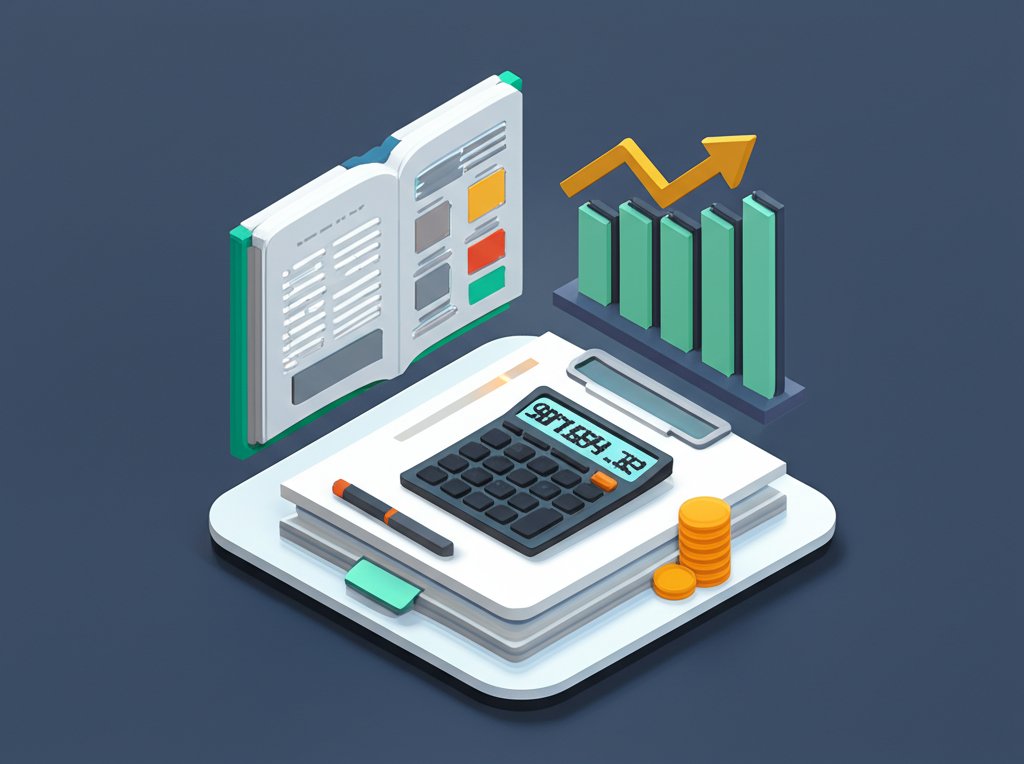In an increasingly complex financial landscape, navigating the intricacies of wealth, compliance, and growth can feel like an overwhelming challenge for individuals, businesses, and even governments. This is where Chartered Accountants emerge as indispensable partners, not merely as record-keepers, but as strategic architects of financial health. Far beyond the stereotype of meticulous number-crunchers, these elite professionals possess a unique blend of expertise, ethical rigor, and forward-thinking insight that makes them vital to prosperity and stability. If you’re seeking to understand the profound impact of these highly qualified accountants and the expansive world of accounting, prepare to discover why their role is absolutely critical to achieving and sustaining robust financial health. This comprehensive guide will illuminate the unparalleled value that Chartered Accountancy brings to every facet of the economic journey.
The Unrivaled Expertise of Chartered Accountants
At the heart of sound financial management lies the specialized knowledge and unwavering dedication of Chartered Accountants. This designation is more than just a title; it’s a testament to a stringent professional journey, setting these individuals apart in the vast field of accounting.
What Sets a Chartered Accountant Apart?
While all Chartered Accountants are skilled accountants, the reverse is not true. The “Chartered” prefix signifies a mark of elite professionalism, rigorous training, and adherence to the highest ethical standards, recognized globally. Unlike general accountants, CAs undertake an intensive program of academic study, demanding examinations, and extensive practical experience, often supervised for several years by a recognized professional body (e.g., ICAEW, AICPA, CPA Canada, CA ANZ). This process ensures they are not just proficient in recording transactions but are masters of:
- Complex Financial Interpretation: Translating raw financial data into actionable insights.
- Strategic Advisory: Providing guidance on business strategy, investment, and risk management.
- Regulatory Compliance: Ensuring adherence to a labyrinth of national and international financial laws and standards.
- Ethical Governance: Upholding principles of integrity, objectivity, and professional competence.
This distinction empowers Chartered Accountants to provide a depth of service and assurance that few others can match, making them trusted advisors in critical financial decisions.
The Rigorous Path to Chartered Accountancy
The journey to becoming a Chartered Accountant is arduous but highly rewarding, underscoring the prestige of the Chartered Accountancy profession. It typically involves:
- Academic Foundation: A bachelor’s degree in accounting or a related business field, providing a strong theoretical base.
- Professional Examinations: A series of challenging exams covering a broad spectrum of subjects including financial reporting, auditing, taxation, corporate finance, business strategy, and management accounting. These exams often have low pass rates, highlighting their difficulty.
- Practical Experience: A mandatory period (usually 3-5 years) of supervised practical experience within an approved firm or organization. This hands-on training allows aspiring CAs to apply theoretical knowledge to real-world scenarios, developing critical professional judgment.
- Continuous Professional Development (CPD): Even after qualification, CAs are required to undertake ongoing learning to stay abreast of evolving regulations, technologies, and best practices in accounting and finance. This commitment to lifelong learning is crucial for maintaining their chartered status and ensuring their advice remains current and sound.
This comprehensive training ensures that a Chartered Accountant is not just an expert in numbers but a well-rounded business professional.
Global Recognition and Ethical Standards
The qualification of Chartered Accountancy enjoys immense international prestige. Professional bodies worldwide maintain reciprocal agreements, allowing CAs to practice their expertise across borders. This global recognition speaks to a universal standard of excellence, signifying that a Chartered Accountant in any major financial hub adheres to a consistent benchmark of quality and ethical conduct. These ethical standards are paramount, forming the bedrock of public trust in the accounting profession. CAs are bound by strict codes of ethics, emphasizing integrity, objectivity, professional competence, confidentiality, and professional behavior, which are fundamental to promoting transparency and accountability across all sectors.
Beyond Bookkeeping: The Diverse Roles of Modern Accounting
Modern accounting, particularly as practiced by Chartered Accountants, is a dynamic and expansive field that touches every aspect of an organization’s operations, directly influencing its financial health. Their roles extend far beyond traditional bookkeeping, transforming them into vital strategic partners.
Strategic Financial Planning and Advisory
Chartered Accountants are pivotal in strategic financial planning. They analyze financial performance, identify trends, forecast future financial positions, and develop comprehensive budgets. Their insights help businesses:
- Optimize Capital Allocation: Making informed decisions on investments and resource deployment.
- Improve Operational Efficiency: Identifying areas for cost reduction and process improvement.
- Evaluate Growth Opportunities: Assessing the financial viability of mergers, acquisitions, and new market entries.
For individuals, they provide personalized financial planning, helping with wealth management, retirement planning, and investment strategies to secure their long-term financial health.
Tax Optimization and Compliance for Businesses and Individuals
One of the most critical areas where Chartered Accountants demonstrate their value is in taxation. They possess in-depth knowledge of complex tax laws and regulations, allowing them to:
- Minimize Tax Liabilities Legally: Through strategic tax planning and identifying eligible deductions and credits.
- Ensure Compliance: Guiding individuals and businesses through the intricate process of tax preparation and filing, mitigating the risk of penalties and audits.
- Resolve Tax Disputes: Representing clients in dealings with tax authorities.
Their expertise ensures that both corporate and personal finances are optimized for tax efficiency while remaining fully compliant, directly safeguarding financial health.
Auditing and Assurance: Ensuring Trust
The role of a Chartered Accountant in auditing and assurance is fundamental to maintaining trust and confidence in financial reporting. Independent audits verify the accuracy and fairness of financial statements, giving stakeholders – investors, creditors, and the public – confidence in the financial information presented by an entity. This rigorous process involves:
- Evaluating Internal Controls: Assessing the effectiveness of systems designed to safeguard assets and ensure accurate data.
- Testing Financial Transactions: Examining records to ensure they are complete, accurate, and comply with accounting standards.
- Providing Unbiased Opinions: Offering an independent assessment of an organization’s financial position, which is crucial for capital markets and investor decisions.
Through their assurance services, Chartered Accountants act as guardians of financial integrity, which is a cornerstone of global financial health.
Forensic Accounting and Risk Management
Beyond traditional roles, Chartered Accountants often specialize in forensic accounting, investigating financial crimes, fraud, and disputes. They apply investigative and accounting skills to:
- Detect and Prevent Fraud: Identifying suspicious financial activities and implementing controls.
- Quantify Damages: Providing expert witness testimony in legal cases involving financial losses.
- Conduct Due Diligence: Assessing financial risks during business transactions.
In risk management, CAs help organizations identify, assess, and mitigate financial and operational risks that could jeopardize financial health, ensuring resilience in an uncertain economic environment.
Cultivating Robust Financial Health: How CAs Make a Difference
Financial health is not just about having money; it’s about sustainable wealth, stability, and the ability to achieve financial goals. Chartered Accountants are the invaluable allies who empower individuals and organizations to attain and maintain this crucial state.
Enhancing Profitability and Cash Flow
For businesses, Chartered Accountants are instrumental in driving profitability and ensuring healthy cash flow. They meticulously analyze revenue streams, cost structures, and operational expenses, providing insights that lead to:
- Optimized Pricing Strategies: Ensuring products and services are priced correctly for profit.
- Efficient Cost Control: Identifying areas where expenses can be reduced without compromising quality.
- Effective Working Capital Management: Managing inventory, receivables, and payables to maximize liquidity.
By optimizing these core elements, CAs help businesses convert sales into sustainable profit, directly fueling their long-term financial health.
Navigating Economic Challenges and Growth Opportunities
The global economy is subject to constant fluctuations. Chartered Accountants possess the acumen to help clients navigate these changing tides. During economic downturns, they advise on restructuring, cost-cutting, and accessing financial aid. In periods of growth, they help identify and capitalize on new opportunities, such as:
- Market Expansion: Assessing the financial feasibility and risks of entering new markets.
- Technological Adoption: Evaluating the ROI of new technologies and digital transformations.
- Capital Raising: Assisting with securing financing for expansion through loans, equity, or other instruments.
Their strategic foresight and analytical capabilities are key to turning challenges into opportunities and securing enduring financial health.
Guiding Personal Financial Well-being
Financial health is equally crucial for individuals. Many Chartered Accountants specialize in personal finance, offering guidance on:
- Budgeting and Debt Management: Creating realistic budgets and strategies to reduce debt.
- Investment Planning: Advising on suitable investment vehicles aligned with risk tolerance and financial goals.
- Retirement Planning: Structuring savings and investments to ensure a comfortable retirement.
- Estate Planning: Helping to plan for the distribution of assets, minimizing tax implications for beneficiaries.
By providing clear, personalized advice, CAs empower individuals to make informed financial decisions, building a secure foundation for their personal financial health.
Measuring and Monitoring Financial Health Metrics
A key aspect of maintaining financial health is the ability to accurately measure and monitor it. Chartered Accountants are experts in developing and interpreting key performance indicators (KPIs) and financial ratios, such as:
- Profitability Ratios: Gross profit margin, net profit margin, return on equity.
- Liquidity Ratios: Current ratio, quick ratio, showing ability to meet short-term obligations.
- Solvency Ratios: Debt-to-equity ratio, indicating long-term financial stability.
- Efficiency Ratios: Inventory turnover, accounts receivable turnover, measuring asset utilization.
These metrics provide a comprehensive snapshot of financial health, allowing for timely adjustments and strategic course corrections. Regular reporting and analysis by Chartered Accountants ensure that businesses and individuals remain on track toward their financial objectives.
The Evolving Landscape of Accounting and Chartered Accountancy

The world of accounting is in a constant state of evolution, driven by technological advancements, global interconnectedness, and shifting societal expectations. Chartered Accountants are at the forefront of this transformation, adapting their skills and services to meet future demands.
Embracing Digital Transformation: AI and Automation
The digital revolution is reshaping every industry, and accounting is no exception. Chartered Accountants are increasingly leveraging technologies like:
- Artificial Intelligence (AI): For predictive analytics, anomaly detection, and fraud prevention.
- Machine Learning (ML): To automate repetitive tasks like data entry and reconciliation, freeing up human capital for higher-value activities.
- Robotic Process Automation (RPA): Streamlining workflows and enhancing accuracy in financial operations.
This embrace of digital tools allows CAs to focus more on strategic insights and less on manual processing, maximizing their impact on financial health.
Sustainability Reporting and ESG Considerations
As environmental, social, and governance (ESG) factors gain prominence, Chartered Accountants are expanding their expertise to include sustainability reporting. They help organizations:
- Measure and Report ESG Performance: Ensuring transparency and compliance with emerging sustainability standards.
- Integrate ESG into Financial Strategy: Advising on how sustainable practices can enhance long-term value and mitigate risks.
- Assure Non-Financial Information: Providing assurance over sustainability reports, building credibility with stakeholders.
This evolving role highlights the CA’s commitment to broader societal impact and the holistic financial health of businesses that consider more than just profit.
The Power of Data Analytics in Financial Insight
Data is the new oil, and Chartered Accountants are becoming expert data scientists within the financial realm. They use advanced data analytics tools to:
- Identify Deep Trends: Uncovering subtle patterns in vast datasets that might otherwise be missed.
- Enhance Forecasting Accuracy: Building more robust financial models based on comprehensive data.
- Provide Granular Insights: Breaking down financial performance to specific products, segments, or regions, offering unparalleled clarity for strategic decisions.
By harnessing the power of data, Chartered Accountants deliver richer, more precise insights, elevating the quality of accounting advice and significantly impacting an entity’s financial health.
Choosing the Right Chartered Accountant for Your Financial Journey
Selecting the right Chartered Accountant is a critical decision that can profoundly influence your personal or business financial health. It requires careful consideration beyond just their accounting qualifications.
Key Qualities to Look For
When choosing a Chartered Accountant, look for a professional who embodies:
- Technical Proficiency: A deep understanding of accounting principles, tax laws, and financial regulations.
- Industry Expertise: Experience with businesses or situations similar to yours, understanding specific challenges and opportunities.
- Strong Communication Skills: The ability to explain complex financial concepts clearly and effectively, providing actionable advice.
- Proactiveness: A professional who anticipates issues and offers solutions rather than just reacting to crises.
- Technological Aptitude: Familiarity with modern accounting software and digital tools to enhance efficiency.
- Unwavering Ethics: A commitment to integrity, confidentiality, and professional standards, building a foundation of trust.
Understanding Services and Fee Structures
It’s essential to have a clear understanding of the services a Chartered Accountant offers and their fee structure. Discuss:
- Scope of Services: Will they handle bookkeeping, tax preparation, auditing, financial planning, advisory, or a combination?
- Billing Method: Hourly rates, fixed fees for specific services, or retainer agreements. Hourly rates for experienced CAs can range significantly based on location and specialization (e.g., $150-$500+ per hour in some regions).
- Value Proposition: How their services will contribute to your financial health and justify the investment.
- Transparency: A clear breakdown of costs and what is included in their fees.
A transparent and upfront discussion about expectations and costs will ensure a smooth and productive relationship.
Building a Trusted Partnership
Your relationship with a Chartered Accountant should be a long-term partnership built on trust and mutual understanding. They will become privy to your most sensitive financial information, making trust paramount. Seek a CA who:
- Listens Attentively: Understands your unique goals, challenges, and aspirations.
- Offers Personalized Advice: Tailors solutions to your specific circumstances, rather than generic recommendations.
- Is Accessible and Responsive: Available to provide timely support and answer questions.
- Acts as a Strategic Advisor: Beyond compliance, helps you strategically plan for growth and optimize your financial health.
A well-chosen Chartered Accountant becomes an invaluable extension of your team, providing expert guidance that is essential for sustained success.
The Indispensable Value of Chartered Accountants for a Sustainable Economy
The impact of Chartered Accountants extends beyond individual businesses and personal finances; they are fundamental pillars of a resilient and prosperous global economy. The profession of Chartered Accountancy provides the necessary structure, oversight, and integrity for commerce to thrive.
Upholding Integrity in Global Commerce
In a world susceptible to financial mismanagement and fraud, Chartered Accountants serve as the unsung guardians of integrity. Their work in auditing, compliance, and ethical advisory ensures that financial markets operate fairly and transparently. By upholding rigorous accounting standards and professional ethics, CAs instill confidence among investors, creditors, and regulatory bodies worldwide. This trust is crucial for facilitating international trade, capital flows, and economic cooperation, ensuring the foundational financial health of interdependent global systems.
Driving Economic Stability and Growth
Chartered Accountants are not just reactive; they are proactive drivers of economic stability and growth. By providing strategic insights, robust financial planning, and risk management expertise, they help businesses of all sizes make sound decisions that lead to sustainable expansion, job creation, and innovation. They are instrumental in:
- Supporting Small and Medium Enterprises (SMEs): Offering critical advice that enables these key economic contributors to grow and succeed.
- Facilitating Investment: Producing accurate and reliable financial statements that attract investment and fuel capital markets.
- Guiding Fiscal Policy: Many CAs work within government or advise policymakers on taxation and economic strategy.
Through these contributions, Chartered Accountants play a vital role in fostering strong, stable economies that benefit everyone.
A Career of Impact and Influence
The Chartered Accountancy profession offers a career path filled with impact and influence. It attracts intellectually curious individuals who are committed to lifelong learning and ethical practice. From advising burgeoning startups to steering multinational corporations, or even shaping national policy, CAs find themselves in positions of significant responsibility and trust. This diverse range of opportunities, coupled with strong demand and competitive remuneration (e.g., studies often show CAs earning significantly higher median salaries than general accountants), makes Chartered Accountancy a highly attractive and deeply rewarding field. It’s a profession where analytical prowess meets real-world application, directly contributing to the financial health and success of communities worldwide.
Conclusion

The journey through the world of Chartered Accountants reveals a profession far more dynamic, impactful, and exciting than commonly perceived. From their ancient roots in meticulous record-keeping to their modern-day role as strategic financial architects, Chartered Accountants are truly the key to financial health for individuals, businesses, and the global economy. They stand apart through their unrivaled expertise, forged by rigorous education and unwavering ethical standards.
The scope of Chartered Accountancy extends well beyond traditional accounting, encompassing strategic advisory, tax optimization, crucial auditing, and even pioneering the integration of advanced technologies like AI and ESG reporting. These elite accountants are not just number-crunchers; they are trusted advisors who enhance profitability, navigate economic complexities, and ensure the integrity of financial information across the world. In an ever-changing financial landscape, partnering with a Chartered Accountant isn’t just a smart decision; it’s an indispensable investment in your long-term financial health and prosperity.
FAQ
Q1: What is the main difference between an accountant and a Chartered Accountant?
A1: While all Chartered Accountants are accountants, the “Chartered” designation signifies a higher level of qualification. A Chartered Accountant has completed a more rigorous program of education, passed a series of challenging professional examinations, and gained extensive practical experience under supervision, all regulated by a recognized professional body. This leads to superior expertise, stricter ethical adherence, and greater global recognition in Chartered Accountancy.
Q2: Why is the “Chartered” designation so important for financial health?
A2: The “Chartered” designation is crucial because it ensures a professional has undergone rigorous training and adheres to the highest ethical and professional standards. This means they are equipped to provide more comprehensive, reliable, and strategic advice, which is essential for making sound financial decisions, managing risks, optimizing taxes, and ultimately safeguarding and improving your financial health.
Q3: How do Chartered Accountants contribute to a business’s financial health?
A3: Chartered Accountants contribute to a business’s financial health by providing strategic financial planning, optimizing tax liabilities, conducting essential audits for transparency, managing risks, improving profitability, and ensuring compliance with regulations. They offer insights that drive growth, enhance efficiency, and build investor confidence.
Q4: How long does it typically take to become a Chartered Accountant?
A4: The path to becoming a Chartered Accountant typically takes 3-7 years, depending on the country and the specific professional body. This includes completing a relevant bachelor’s degree (3-4 years) followed by professional qualification exams and a period of practical work experience (usually 3 years).
Q5: What are some surprising facts about the field of accounting or accountants?
A5: While the original article focused on “fun facts,” a key surprising aspect is the ancient legacy of accounting, dating back to early civilizations using clay tokens for record-keeping. Also, the profound adaptability of accountants to integrate advanced technology like AI and data analytics, moving far beyond traditional number-crunching, continues to surprise many.
Q6: What types of industries do Chartered Accountants work in, and what career opportunities exist?
A6: Chartered Accountants work in virtually every industry, including public practice firms (audit, tax, advisory), corporate finance (CFOs, financial controllers), government and public sectors, non-profit organizations, financial services (investment banking, asset management), and entrepreneurship. Their versatile skills open doors to an exceptionally wide array of career opportunities.
Q7: How do modern Chartered Accountants utilize technology to enhance financial health?
A7: Modern Chartered Accountants leverage technology like AI, machine learning, and robotic process automation to automate routine tasks, improve data accuracy, and conduct predictive analytics. They also utilize advanced data analytics tools to identify trends, forecast with greater precision, and provide deeper, more granular financial insights, all of which significantly enhance financial health strategies.










